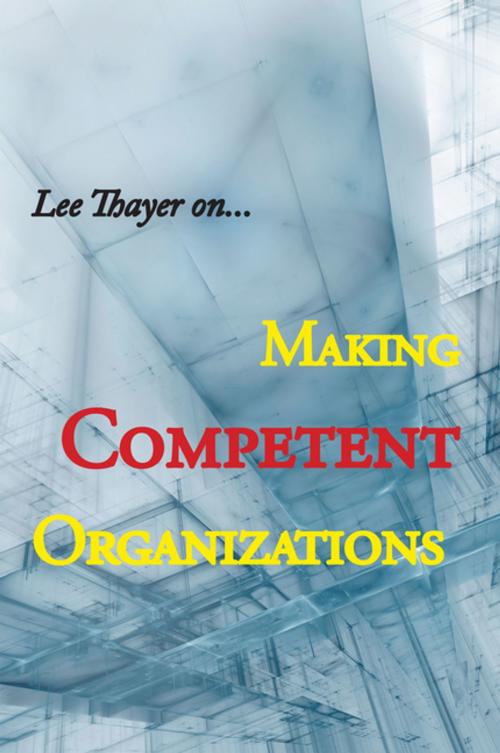Making Competent Organizations
Nonfiction, Reference & Language, Education & Teaching, Educational Theory, Leadership, Administration| Author: | Lee Thayer | ISBN: | 9781984512888 |
| Publisher: | Xlibris US | Publication: | April 20, 2018 |
| Imprint: | Xlibris US | Language: | English |
| Author: | Lee Thayer |
| ISBN: | 9781984512888 |
| Publisher: | Xlibris US |
| Publication: | April 20, 2018 |
| Imprint: | Xlibris US |
| Language: | English |
Travel where you will in todays America, and youre likely to be drawn into a conversation about mistreatment by one or more of todays organizations. Someone ordered something. But when the order came it wasnt what they ordered. That was two years ago and still ongoing. Or Your call is very important to us. Thats why youre number 19 in the queue. Doctors and hospitals make mistakes. Only a few are really fatal. But they have insurance for that. Will you get what you want from an organization? It may depend upon whom in the organizations youre talking to. An organizations marketing is not an organizations performance. Its just talk. Organizations live and die by their deeds. This book tells you how. Malfunctions in organizations are ubiquitous. They occur in every kind of organization of every size. Why is that? How do you avoid falling victim to the conventional, to mediocrity? This book can be your guide. Add to that the fact that highly paid CEOs are often frustrated by the performance of their own organizations. Thats one reason for their ever-shortening tenure in that role. They are often disgruntled by the performance of their own executives and managers. And those employees are often openly dissatisfied with the organizations where they work. Even after thousands of books and many thousands of conferences since the 1970s, our organizations dont seem to be doing much better. Here is that rare book that tells you how to perform in the real world. This book addresses those problems head-on. It addresses the sources (not the symptoms) of organizational dysfunctions. Regardless of title, you wont find elsewhere a better guide to making competent organizations, which is where the problems lie. This book is about how you, the CEO or CEO aspirant, need to think about what needs thinking about, for how you think about what needs thinking about will determine who you are. And who you are determines what you can and cannot do about making yours a fully functioning, competent organization. Just reading about it is not of much help. Aristotle said many years ago, What you must learn, you must learn by doing. This book is unique; it tells you how to do just that.
Travel where you will in todays America, and youre likely to be drawn into a conversation about mistreatment by one or more of todays organizations. Someone ordered something. But when the order came it wasnt what they ordered. That was two years ago and still ongoing. Or Your call is very important to us. Thats why youre number 19 in the queue. Doctors and hospitals make mistakes. Only a few are really fatal. But they have insurance for that. Will you get what you want from an organization? It may depend upon whom in the organizations youre talking to. An organizations marketing is not an organizations performance. Its just talk. Organizations live and die by their deeds. This book tells you how. Malfunctions in organizations are ubiquitous. They occur in every kind of organization of every size. Why is that? How do you avoid falling victim to the conventional, to mediocrity? This book can be your guide. Add to that the fact that highly paid CEOs are often frustrated by the performance of their own organizations. Thats one reason for their ever-shortening tenure in that role. They are often disgruntled by the performance of their own executives and managers. And those employees are often openly dissatisfied with the organizations where they work. Even after thousands of books and many thousands of conferences since the 1970s, our organizations dont seem to be doing much better. Here is that rare book that tells you how to perform in the real world. This book addresses those problems head-on. It addresses the sources (not the symptoms) of organizational dysfunctions. Regardless of title, you wont find elsewhere a better guide to making competent organizations, which is where the problems lie. This book is about how you, the CEO or CEO aspirant, need to think about what needs thinking about, for how you think about what needs thinking about will determine who you are. And who you are determines what you can and cannot do about making yours a fully functioning, competent organization. Just reading about it is not of much help. Aristotle said many years ago, What you must learn, you must learn by doing. This book is unique; it tells you how to do just that.















